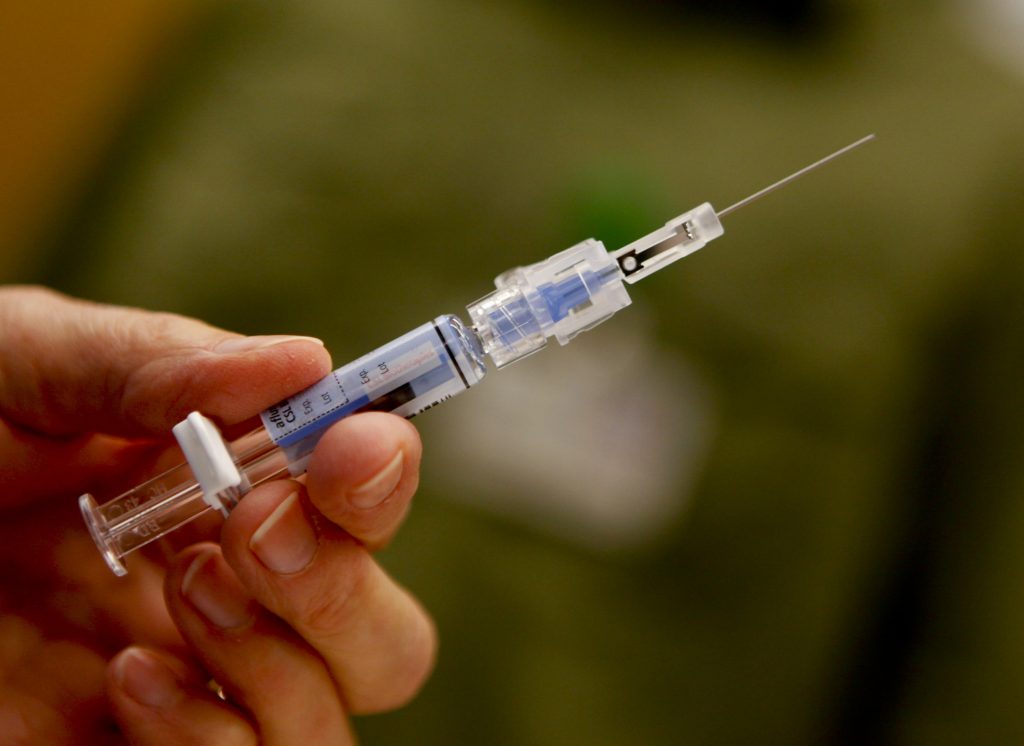
I hadn’t realized how big the anti-vaccination movement really was until I came to college.
One of the first conversations I had with my new college friends was about vaccinations. I had casually mentioned about going home one weekend to get a flu shot and asked everyone if they had gotten one yet.
Most of them chimed in about getting home to their doctors or visiting the free immunization clinics on campus soon. But a couple of them shifted uncomfortably in their seats.
As an avid believer in the merits of vaccination and their overall benefit to society, I immediately jumped on it. I asked my new friends why they felt so uneasy about vaccinations. They said that they thought it was “unnatural” — that the body should fight off infection on its own. Some said that they had never gotten a vaccine in their lives and they were completely fine. If it hadn’t happened in 18 years then why would it happen now?
I felt frustrated, to say the least. I tried to explain the concepts of acquired immunity and herd immunity and the data that showed decreases in cases of diseases, like polio, due to vaccines. I used the analogy of an artificial heart valve — sure it was synthetic but would you guys refuse to get the surgery to correct a curable defect just for the sake of remaining “natural?”
But for almost every argument that I made, they had a counterargument. Some of them just didn’t believe the science — shouldn’t our bodies be able to naturally create antibodies? Why are we coddling our immune system? Others believed that “Big Pharma” was just trying to pull a fast one on them — the drug companies just want to make money … there’s no need for all these vaccines for little children! And a few had ethical concerns with using donated fetal cell lines from the 1960s in certain vaccines. How could I put baby cells into my body? That’s just sick!
I took extensive biology courses in high school, ones that explained exactly why vaccines worked to eradicate diseases like smallpox and polio; I currently work to prevent the flu and measles; and I will eventually work to help stop HIV and Ebola. I’ve been shown graphs that illustrate how vaccines make you slightly sick at first while your body trains the antibodies that function like an army to defeat the enemy virus. I’ve been taught the intricacies of the immune system cells and how vaccines help your body understand a harmless version of the virus so that you won’t get super sick when it encounters the real thing. I understand the science because it has been so patiently explained to me again and again.
But many people aren’t given that explanation. That’s an issue.
I know it’s easy to write off people who are anti-vaccination as dumb and ignorant. But that kind of thinking isolates and it only makes the divide greater.
My friends, for example, are not stupid. They are intelligent people majoring in a variety of disciplines — business, economics, engineering and others. They are not nutjobs sitting in their basement with tinfoil hats and boards full of conspiracy theories about the flat earth or New World Order. They are regular college students who for some reason just don’t believe that the facts check out when it comes to vaccinations.
Sure, some people won’t be convinced no matter what you tell them. But many people are just skeptical human beings that have some understandable concerns. And they shouldn’t be hated for that. I argue that skepticism is the driving force of science. After all, one of the first steps of research and the scientific method is to ask questions. People who are skeptical of vaccines should be able to ask their questions and not be met with scoffs or rolled eyes. Instead, their questions should be answered with patience and compassion.
Vaccines have been invented to save people, so it’s only fair that people get to know exactly how that happens.

